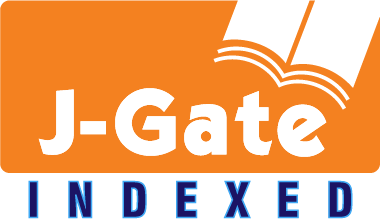Target of information disorder: Syrians under temporary protection in Turkey
DOI:
https://doi.org/10.26809/joa.2024Keywords:
Syrians under Temporary Protection, Higher Education, Turkey, Information Disorder, UniversityAbstract
Information disorder can be presented as a problem in this age of accelerating digitalization and communication. For this reason, research on this concept is important in terms of deepening the subject. In this research, a study was conducted on the university entrance practices for Syrians under temporary protection in Turkey. The allegation that Syrians entered the university unconditionally and without examination has been examined through the students and graduates of university life in Turkey in 2016 or later. How these students or graduates acquire, evaluate, interpret, share and confirm relevant information is examined.
The study’s methodology was qualitative. The target audience is chosen to be undergraduate students currently enrolled in universities or 2016 graduates and beyond. The timing preference is due to the fact that word about Syrians’ access to higher education only began to circulate in 2013–2015. To allow the participants to respond to the questions with specific dimensions and to provide the research new meanings, a semi-structured interview was used. Due to the COVID-19 epidemic, the interviews were done over the internet. Interviews are conducted with 38 people (n = 38). The interviews take place from July 13 to August 6, 2020.
As a result, each participant is familiar with the news and information regarding Syrians’ unrestricted, cost-free access to higher education via hearing, reading, and viewing it. The majority of participants claimed that this information is reactive and vital and that the majority of it is gained through text-based or face-to-face communication, even if social media and face-to-face interactions account for the majority of the information’s sources. Face-to-face sharing is by far the most common sort of sharing. Confirmation culture is not high among participants.
Downloads
References
ATESOK, Z.O. et al. (2019) ‘An Evaluation of Refugees’ Access To Higher Education: Case of Turkey and Istanbul University’, Journal of International and Comparative Education, 8(2), 119–136. Available at: https://doi.org/10.14425/jice.2019.8.2.119.
Cumhuriyet (2012) Suriyeli mültecilere Türkiye’de sınavsız üniversite. Available at: https://www.cumhuriyet.com.tr/haber/suriyeli-multecilere-turkiyede-sinavsiz-universite-371816 (Accessed: 12 February 2023).
Ekşisözlük (2020). Suriyeli mültecilere sınavsız üniversite hakkı, ekşi sözlük. Available at: https://eksisozluk.com/suriyeli-multecilere-sinavsiz-universite-hakki--4029677 (Accessed: 12 February 2023).
Göç İdaresi Başkanlığı (2023) Geçici Koruma. Available at: https://www.goc.gov.tr/gecici-koruma5638 (Accessed: 28 June 2022).
GRABMEIER, J. (2019) ‘You Create Your Own False Information, Study Finds’, phys.org, 9 December. Available at: https://phys.org/news/2019-12-false.html (Accessed: 4 April 2020).
JANG, S.M. & KIM, J.K. (2018) Third Person Effects of Fake News: Fake News Regulation and Media Literacy Interventions, Computers in Human Behavior, 80, 295–302.
LEUNG, W. (2019) ‘How do Our Brains Fall for Disinformation?’, theglobeandmail, 14 October. Available at: https://www.theglobeandmail.com/canada/article-how-do-our-brains-fall-for-disinformation/?utm_source=First+Draft+Subscribers&utm_campaign=75c6daaad4-EMAIL_CAMPAIGN_2019_09_10_11_59_COPY_01&utm_medium=email&utm_term=0_2f24949eb0-75c6daaad4-264028861&mc_cid=75c6daaad4 (Accessed: 4 July 2020).
ÖZDE ATEŞOK, Z., KOMSUOĞLU ÇITIPITIOĞLU, A. & ÖZER YÜRÜR, Y. (2020) Syrian Students’ Participation in Higher Education in Turkey: An Institutional Perspective. Istanbul University Press. Available at: https://doi.org/10.26650/B/SS11.2020.010.
Sabah (2013) Suriyelilere üniversiteye sınavsız girme hakkı, Sabah. Available at: https://www.sabah.com.tr/egitim/suriyeli-siginmaci-genclere-universiteye-sinavsiz-girme-hakki-2525180 (Accessed: 12 February 2023).
SHAH, K. (2020) When Your Family Spreads Misinformation, The Atlantic, 16 June. Available at: https://www.theatlantic.com/family/archive/2020/06/when-family-members-spread-coronavirus-misinformation/613129/ (Accessed: 6 July 2020).
‘Sinan Oğan: Suriyeliler İstediği Üniversiteye Sınavsız Giriyor’ (2020). Available at: https://www.youtube.com/watch?v=WaE7l80SD0Y (Accessed: 12 February 2023).
TANCA, K.E. (2020) Araştırma: Kimler Yanlış Bilgiye İnanmaya Daha Yatkın?, Teyit.org, 14 March. Available at: https://teyit.org/arastirma-kimler-yanlis-bilgiye-inanmaya-daha-yatkin/ (Accessed: 12 May 2020).
VOSOUGHI, S., ROY, D. & ARAL, S. (2018) ‘The Spread of True and False News Online’, Science, 359, 1146–1151.
WARDLE, C. (2018a) Information Disorder: The Essential Glossary. Harvard Kenedy School. Available at: https://firstdraftnews.org/wp-content/uploads/2018/07/infoDisorder_glossary.pdf?x30563 (Accessed: 11 March 2021).
WARDLE, C. (2018b) The Need for Smarter Definitions and Practical, Timely Empirical Research on Information Disorder, Digital Journalism, 6(8), pp. 951–963. Available at: https://doi.org/10.1080/21670811.2018.1502047.
WARDLE, C. & DERAKHSHAN, H. (2017a) Information Disorder: Toward an Interdisciplinary Framework for Research and Policy Making. Council of Europe report DGI(2017)09. Council of Europe, p. 110.
WARDLE, C. & DERAKHSHAN, H. (2017b) Information Disorder: Toward an interdisciplinary framework for research and policymaking. Council of Europe: Councilof Europe.
WASSERMAN, H. (2020) ‘Cultural Factors are Behind Disinformation Pandemic: Why This Matters?’, The Conversation, 5 July. Available at: https://theconversation.com/cultural-factors-are-behind-disinformation-pandemic-why-this-matters-141884 (Accessed: 11 July 2020).
Downloads
Published
How to Cite
Issue
Section
License
Copyright (c) 2023 Holistence Publications

This work is licensed under a Creative Commons Attribution 4.0 International License.
When the article is accepted for publication in the Journal of Awareness, authors transfer all copyright in the article to the Rating Academy Ar-Ge Yazılım Yayıncılık Eğitim Danışmanlık ve Organizasyon Ticaret Ltd. Şti.The authors reserve all proprietary right other than copyright, such as patent rights.
Everyone who is listed as an author in this article should have made a substantial, direct, intellectual contribution to the work and should take public responsibility for it.
This paper contains works that have not previously published or not under consideration for publication in other journals.











